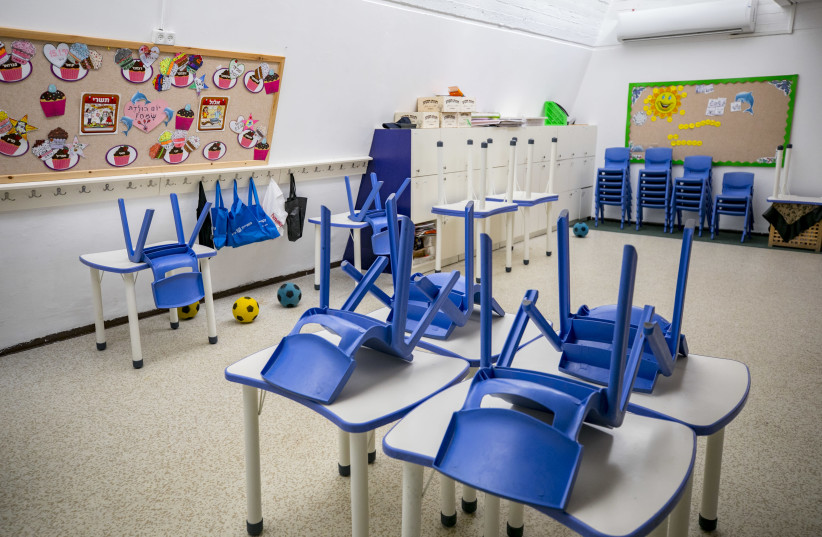The Jerusalem Post editorial published on May 22, “Teacher shortage,” includes significant misstatements of fact and even less accurate interpretations of the facts.
The report on the growth of the student body by Israel’s Central Bureau of Statistics (CBS) published on the 10th of May predicts a 9% growth in the student body from 2021 to 2026; however, this is nothing out of the ordinary. Between 2013 and 2021, the student body grew by about 2% a year and the growth rate for 2021-2026 will be slightly smaller, reaching 2.044 million (and not 2 million as you reported).
An earlier CBS report from March this year reported the rate of growth of the teaching force between 2011 and 2021 as 3.2% annually – cumulatively, rather faster than the rate of growth of the student body. The latest CBS report from May predicts the need for an extra 24,000 teachers by 2026, not 16,000 as you reported – but even this represents a growth rate of 2.3% annually, only 70% of the average the previous decade. Fortunately the Post did not repeat the false claims put out by the teachers’ unions and debunked by the Education Ministry, that large numbers of teachers are leaving the profession.
The plain fact is that there is no exceptional shortage of teachers this year and no prospective problem of filling the reduced demand for teachers in the next few years.
The real problem is a steady and growing lack of quality teachers. The academic achievements and level of preparedness of Israel’s graduates of teaching seminars is very low compared to teachers in other countries. There is a particular shortage of quality teachers of math, science and English, and this shortage is most severe in poor and peripheral communities. Most of all, there is a serious shortage of qualified principals.

UNLIKE PRIVATE businesses, Israel’s public education system just about never fires bad teachers. A significant proportion of the current teaching staff – perhaps 10%, perhaps 20%, nobody really knows – should be working for Uber instead.
So, Israel does not lack teachers, it lacks good teachers.
Is there a solution?
The solution is not to shower money indiscriminately upon the country’s teachers. Teacher salaries have risen sharply since 2000, with no visible improvement in the quality of education. What’s needed is to spend money wisely, over a number of years, to address Israel’s greatest shortcomings in teacher quality.
New teachers should indeed be paid much better, but these better salaries should only be paid to a smaller number of teaching candidates with higher academic credentials, chiefly university graduates. Teachers with many years of seniority earn excellent salaries and there is no need to waste more money on them.
The teachers’ unions want all teachers to be paid the same, but this would be a mistake. Israel has many highly qualified, scientifically trained people, some of whom want to teach and would make excellent teachers – provided they are paid what they’re worth, e.g. salaries comparable to the high-tech sector. This would be an excellent investment in the future of Israel’s economy and students.
Much of this could be paid for by letting go of some of the copious dead weight now in the teaching profession and closing superfluous teachers’ training colleges.
Above all, principals should be treated as the highly qualified executives they have to be. They should enjoy salaries considerably higher than those of teachers – many today earn less than some teachers who work for them – and should enjoy much increased autonomy on the job, including the right to decide whom to hire, whom to fire and how much to pay.
The writer is director of policy research at Kohelet Policy Forum.
